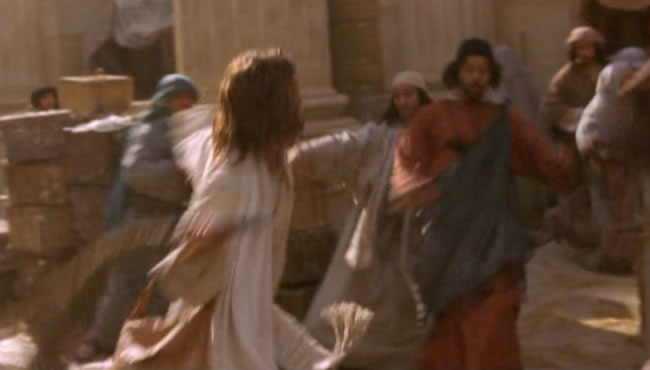16 Days in Central America
Between May 18 and August 12 this summer, I spent 16 days in Honduras and Nicaragua. I was traveling with HOI, an organization that has been working in Honduras’s Agalta Valley for 25 years now. This is an exhaustive (though brief) run-down of everything I personally did. For more info on HOI, two great resources are their answers to commonly asked questions and their write-up on the extraordinary results of their work.
May 18 – 21
We had been giving money to HOI for over a year and very strongly wanted to get down to Honduras to actually see the work for ourselves. Our opportunity finally came in May.
had been giving money to HOI for over a year and very strongly wanted to get down to Honduras to actually see the work for ourselves. Our opportunity finally came in May.
Along with a handful of others, Jennie and I left Sunday evening for Tegucigalpa, Honduras. We landed and immediately hit the road to Juticalpa (with a brief rest stop at the Mennonite bakery). We spent the night at the Hotel Boquerón in Juticalpa, and then hit the road for Rancho Paraíso (HOI’s home base in the Agalta Valley) first thing the next morning.
The setting of the ranch is just stunning. It’s impossible to convey in photos just how beautiful this area is. It’s easy to see why so many people love it. To the right is just one of the scores of photos we took.
Community Development
HOI’s mission is to not only feed the poor, but to empower them to escape long-term poverty for good. A key component of that is community development. When you’re dealing with the second and third poorest countries in the Western Hemisphere (behind only Haiti), there is an incredible amount of simple groundwork that must be laid.
In each village, HOI works to establish five basic things for each home: a dedicated place to use the bathroom, chimneys to expel cooking smoke, concrete floors instead of dirt, potable water, and electricity. After lunch at the ranch on the 19th, we spent the afternoon visiting some of the nearby villages to see that work in person.
Education
Another key component of breaking the cycle of poverty is education.
HOI runs an elementary school and middle school in Culuco, just down the road from the ranch, where all the children in the area can receive a very high quality education. Some children even ford the river on horses to get to school every day. Every child within range of the school is afforded an opportunity to take advantage of all it has to offer — including a full computer lab where they learn on the very latest equipment with the very latest software. (When we were there, one of the middle school classes was working with the latest version of Excel.)
The morning of the 20th, we spent a couple of hours at the school. Each elementary school class sang us a song (including “Head, Shoulders, Knees & Toes” in English), and we got an in-depth tour of all that was going on. Needless to say, as a teacher this was probably Jennie’s favorite stop.
Health
A third key component is health. Obviously much of the community development work is to support this effort, but there are a couple of other ways that HOI is addressing it as well. We got to experience a couple of them up close the afternoon of the 20th.
 The first is with medical clinics. HOI has built and staffed several different medical clinics around the area where local residents can have a number of health issues addressed — both proactively and reactively. They have also initiated a dental program this year, complete with a mobile dental facility.
The first is with medical clinics. HOI has built and staffed several different medical clinics around the area where local residents can have a number of health issues addressed — both proactively and reactively. They have also initiated a dental program this year, complete with a mobile dental facility.
The second is with nutritional education. The beautiful girl to the right is just one of the many children we met on the 20th. (Click the image for a better view.) We marveled over the gorgeous blonde streaks in her hair until we learned that they were evidence of severe malnutrition. Her mother is one of the villagers who, with the encouragement and guidance of HOI, now has her own garden in order to grow the vegetables that will provide the nutrients that she and her little girl need. Convincing the people that they need more than rice and beans is just one of the many steps in breaking the cycle of poverty.
July 13 – 18
While Jennie and I were so thankful to have gotten to go to Honduras, we still longed to be able to have the kids experience it as well. That opportunity came in July as HOI led a trip to Nicaragua — a new location where they have recently begun work. It was valuable to see the beginning of the work, compared with the mature work in Honduras.
We had an absolute blast. I cannot recommend a family trip highly enough. Even Jonathan, who’s not yet five, had the time of his life.
Waking Up in Managua
We arrived in Managua late on Sunday night, so there was virtually nothing to see until we woke up on the 14th. Thankfully, Managua delivered right away. The kids got to eat breakfast in the open-air dining room as the cat wandered around.
Boo was digging it.
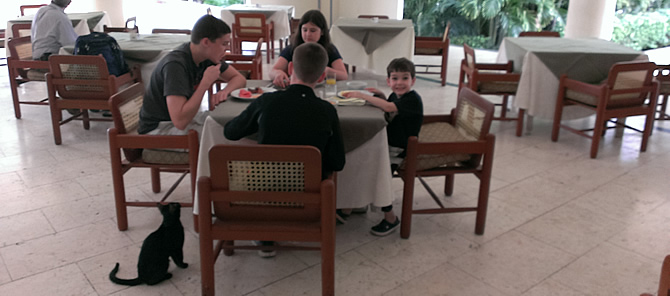
From there, we headed up to Finca El Petén, our home for the next three days. Residing high in the mountains of Jinotega, the beauty of this place cannot be overstated.
Highs were in the upper 70s and low 80s during the day, with lows at night in the 60s. And there was always a breeze. Just as with Rancho Paraíso, it’s a stunning location.
After getting settled in, we visited Los Robles (the village where we would be working the next day) and the farm operations of Finca Java.
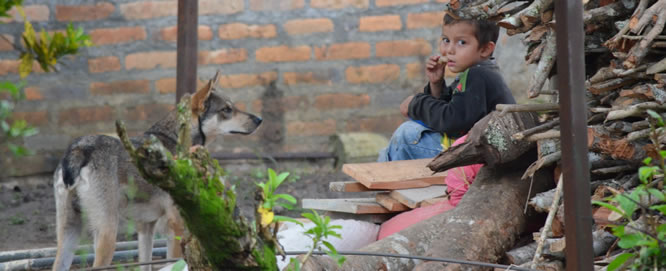
A Day in the Village
 July 14th was our big day. While most of the group spent the morning mixing and pouring concrete floors for two of the houses in the village, Jennie and Jonathan colored and made sticker pictures with some of the children. They colored and played for hours.
July 14th was our big day. While most of the group spent the morning mixing and pouring concrete floors for two of the houses in the village, Jennie and Jonathan colored and made sticker pictures with some of the children. They colored and played for hours.
Once the floors were done, we headed back to the finca for lunch and a little rest. Then it was time to head back into the village.
We dropped some of the group off at the local soccer field to play with the locals. The rest of us went back to the village gathering area to do a short Vacation Bible School with all the village children.
After the Bible stories and crafts came the best part (at least for me). Mary Elizabeth had made a Rainbow Loom bracelet for every child in the village — 22 in all. They were thrilled. Here’s a video of her handing them out.
Young Life
The next day, we left the finca and headed back south to Granada. On the way, we stopped at the Young Life camp in Matagalpa. Young Life has done some amazing work in Nicaragua, and it was exciting to hear about it and witness some of it in action.
Opportunity International
Opportunity International is another organization that we have supported for some time (Opportunity Nicaragua specifically) and couldn’t wait to see in person. After a fantastic dinner at El Zaguan on the 16th with Opportunity Nicaragua Executive Director (and Alabama grad), David Kone, we enjoyed a great night’s sleep and then hit the ground running on the 17th.
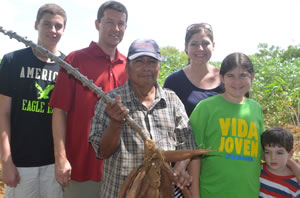 Our first stop was a visit with yucca farmer Don Concepcion. Opportunity’s work in Nicaragua started with the yucca farmers and has just exploded.
Our first stop was a visit with yucca farmer Don Concepcion. Opportunity’s work in Nicaragua started with the yucca farmers and has just exploded.
From there, we headed to the yucca processing plant. Opportunity buys the yucca from the farmers and harvests it for them, providing them much greater revenue than they ever had before. They then turn it into a wide array of products, using every single part of the plant.
After the yucca operations, we headed to their amazing school. There they teach the kids not only advanced agriculture or tourism skills, they also teach them how to do it specifically as entrepreneurs. The school includes a vast organic farming operation with a variety of fruits and vegetables, as well as a large egg operation.
Finally, it was up to the edge of a vast crater lake where Opportunity is building a new ecolodge that will not only provide additional revenue for their Nicaraguan operations, but will also provide a place for on-the-job training for students of the school.
Seeing their work in person was every bit as exciting — and challenging — as we thought it would be.
August 6 – 12
By the Nicaragua trip, it was becoming apparent that God had in mind a much bigger role with HOI than we had anticipated. So I accepted an invitation back to Honduras for an opportunity to see things at a much bigger-picture level.
Biomass Power Plants
Our first stop, the afternoon of August 6, was a meeting in Tegucigalpa with Fundación para el Desarrollo Municipal (FUNDEMUN) to hear their plans for building several biomass power plants in Honduras. The country has an abundance of biomass fuel (and places to grow more), a severe power generation problem, and dramatic underemployment — making these plants a perfect addition to the economy.
Breakfast with the President’s Chief of Staff
The next morning, we had breakfast at the Casa Presidential with the Honduran president’s chief of staff, Jorge Ramon Hernández-Alcerro, a member of HOI’s board of directors. We covered a wide range of topics, including how the U.S. is helping the Honduran government in their fight against drug trafficking in the country and the latest with HOI’s work in the country.
New HOI Location in Southern Honduras
After breakfast, we hit the road to San Lorenzo. After settling into our home for the night, we headed to the offices of the Agrolibano Foundation, one of the companies who lobbied (successfully) for HOI to add southern Honduras as a new project location. There we learned about the community development that Agrolibano has already been doing, including the complete turnaround of the local hospital.
The next morning, we toured one of the villages bordering the vastmelon farms of Agrolibano, met with the ladies of the village, and visited their school.
El Sembrador School and Farms
Next it was back through Tegucigalpa and on to Juticalpa for the night. Bright and early the next morning, we were off to the school and vast farming operations of El Sembrador. El Sembrador takes the best and brightest students from all over Honduras and gives them not only an excellent academic education, but spiritual education as well. The farms help fund the school with extensive dairy and beef cattle operations — all of which were a great learning opportunity for us.
Have I mentioned that everywhere down there is just gorgeous?
Meanwhile, Back at the Ranch
After our visit to El Sembrador, we hit the road to Rancho Paraíso for a couple of nights. We took in a soccer game at the ranch and met with a few of the Young Life leaders in Honduras to hear how their work was going. We were met at the ranch Saturday night by more than 200 kids streaming out of a Young Life meeting. Not bad for just a few months’ work by the Young Life couple newly arrived on the ranch.
Meeting with the President of Honduras
Sunday night, we got confirmation that the president of Honduras would like to meet with us Monday afternoon, so we headed out from the ranch first thing Monday morning. Over coffee in his Oval Office, we discussed several topics and just generally spent time learning about one another’s efforts at improving life in Honduras — a task that takes many hands.
Moving Forward
I have no idea what the future holds, but I certainly hope it includes more trips to Honduras and Nicaragua. A single visit is truly life-changing; three in one summer was amazing.
I know I can’t possibly answer even most questions in a short post like this, so feel free to fire away if there’s something you’re interested in. And if you’d like to get a better sense of what it’s like there, we have lots of great photos (thanks to my awesome wife) and many videos as well. We’d love to sit down with you some time and give you a more in-depth look.
Better yet? Go with me next time. I’m not kidding. We’ll put together a special trip designed just for you and what you’d like to see and do. With three different locations, there are a ton of options. Heck, just look at all the different things we did.
Mary Elizabeth asked me before we went if I thought she’d like it better than Disney World. I told her I thought she would. No one does it like Disney, but the depth of experience on a trip like this is one that Disney just can’t touch.
Ask her what she thinks now :)


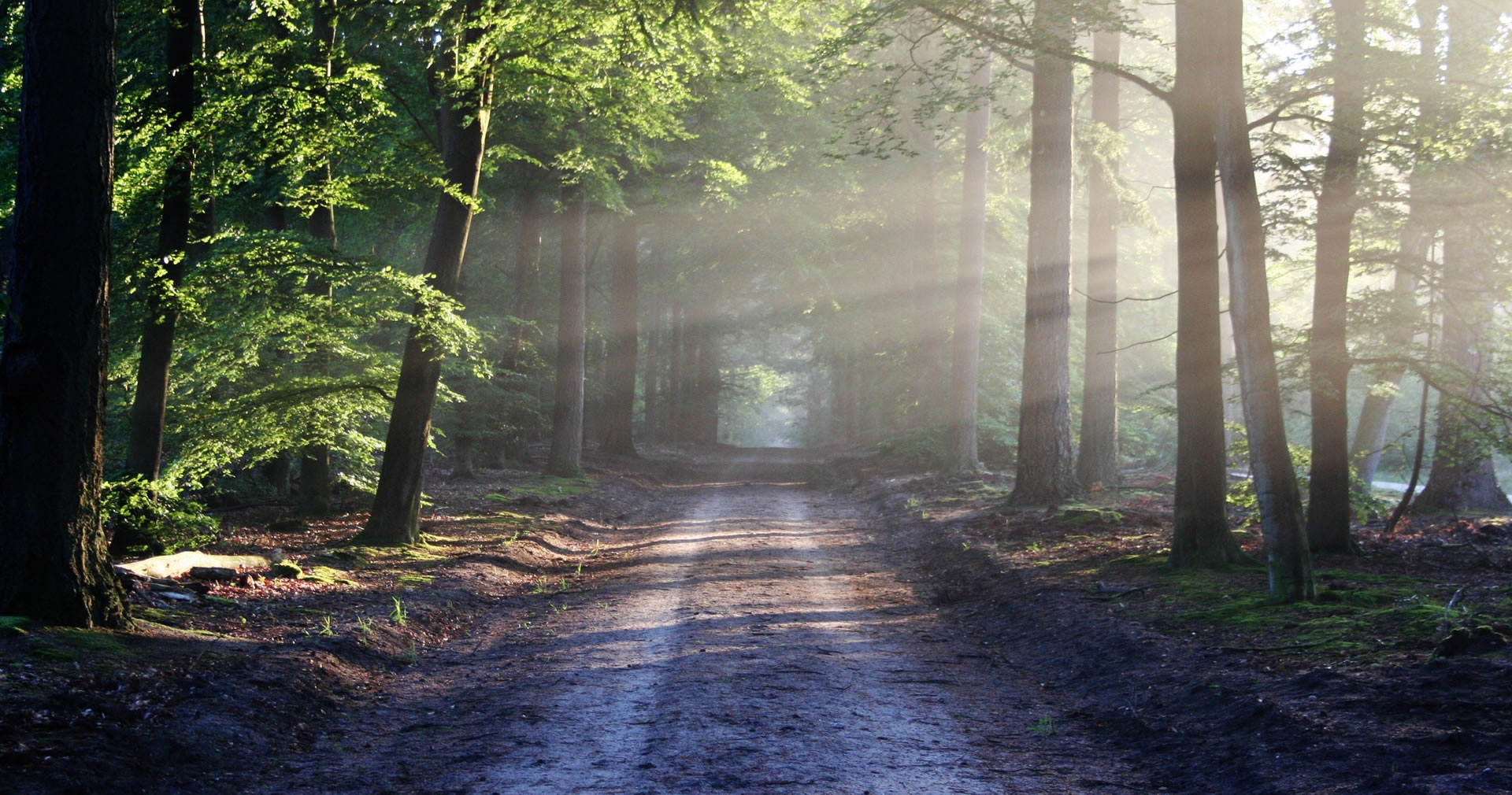
 Remember the Florida debacle in the 2000 presidential election? A poorly designed paper ballot had election officials struggling to determine what most accurately represented the will of the voter: A hanging chad, a dimpled chad, a partially detached chad or a two-cornered chad. Many argued that a dimpled chad showed intent and thus should be counted as a vote. Others argued that the vote shouldn’t be counted unless the voter showed enough commitment to their vote to actually dislodge the chad.
Remember the Florida debacle in the 2000 presidential election? A poorly designed paper ballot had election officials struggling to determine what most accurately represented the will of the voter: A hanging chad, a dimpled chad, a partially detached chad or a two-cornered chad. Many argued that a dimpled chad showed intent and thus should be counted as a vote. Others argued that the vote shouldn’t be counted unless the voter showed enough commitment to their vote to actually dislodge the chad.